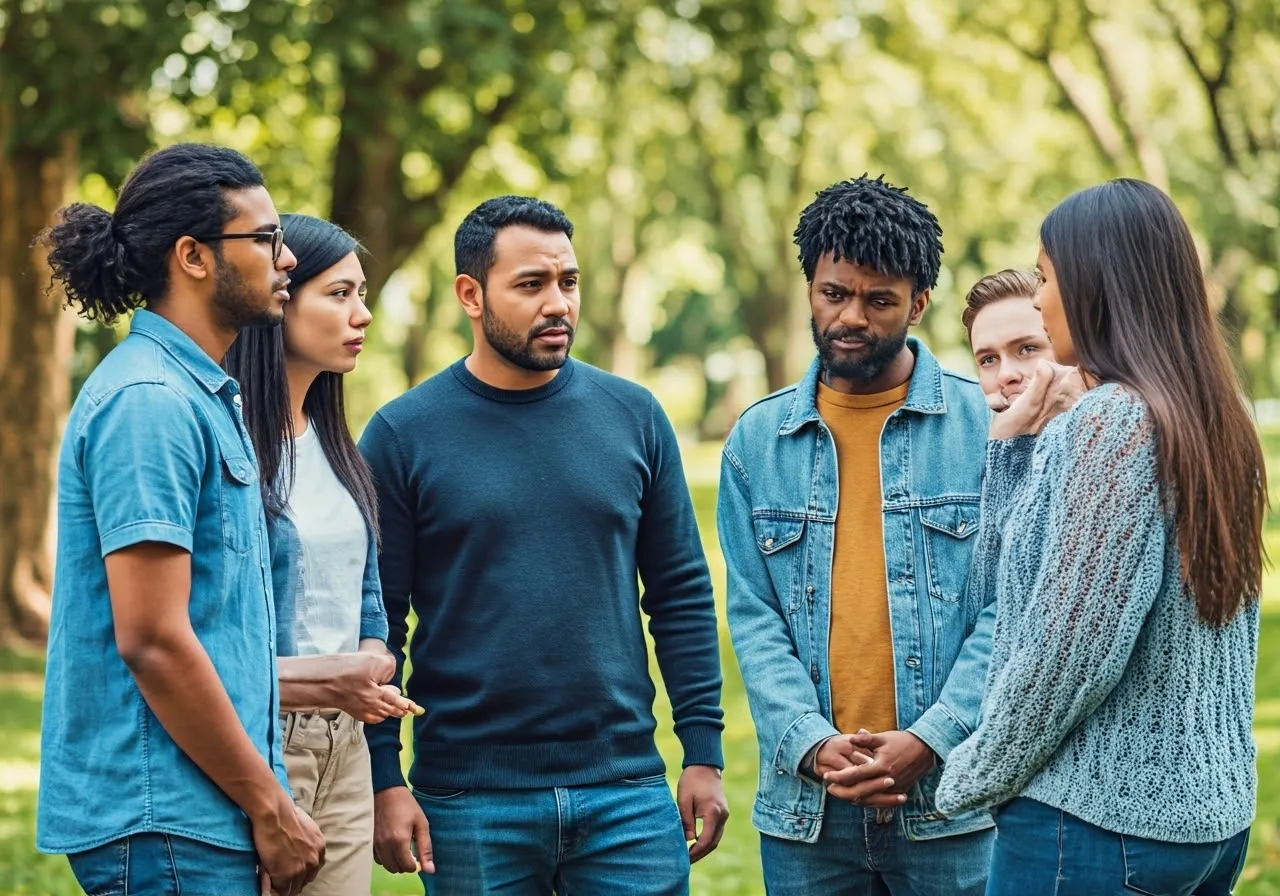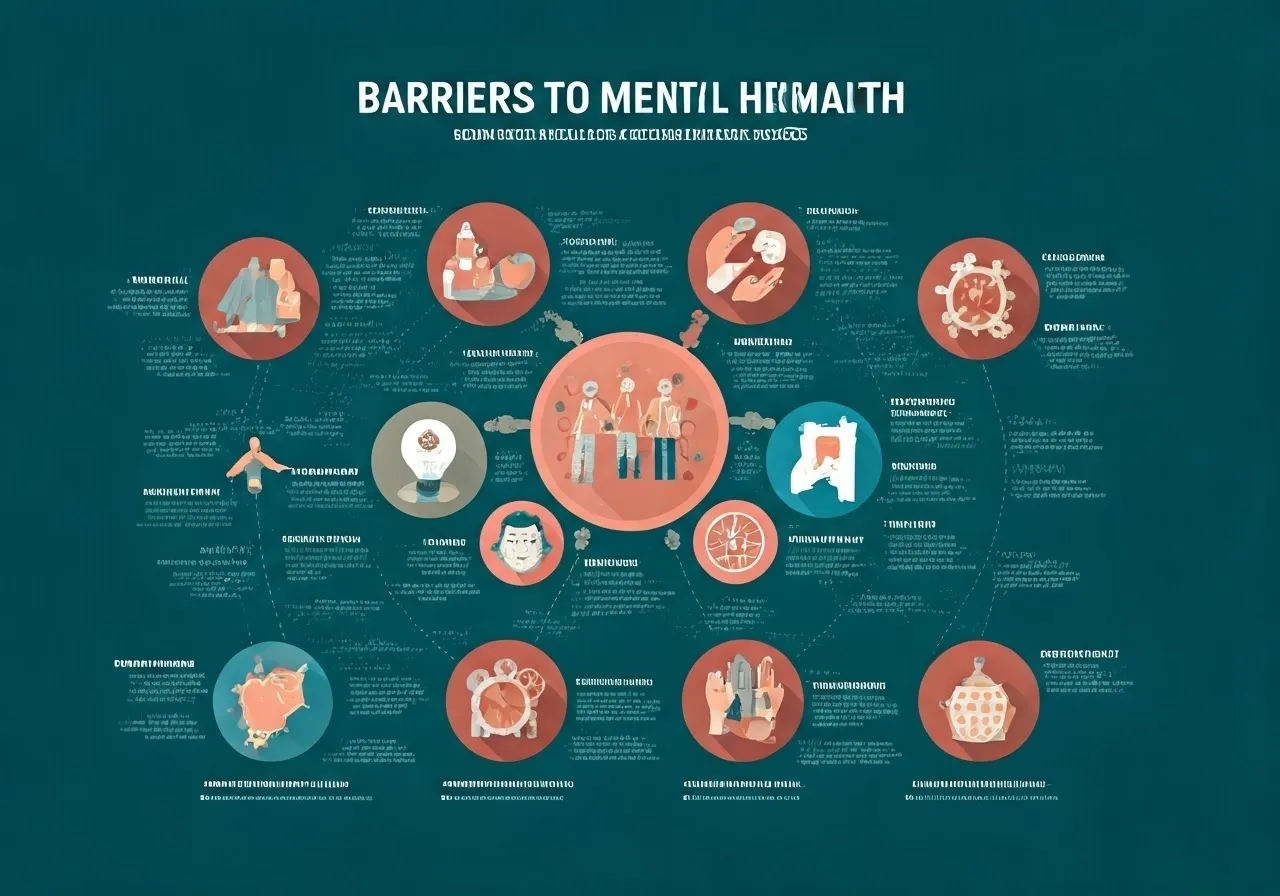Minority mental health is an important human rights issue that needs a global view across all countries of the world, particularly addressing minority issues. This blog post wants to highlight the special problems that ethnic, linguistic, and social minorities have related to their mental health. By learning about these problems, we can move towards a future where good mental health resources are available to everyone, no matter their background or identity.

The word "minority" means more than just a small number of people. It is about how power works and shows the experiences of groups that may feel excluded or face hardships due to their culture, ethnicity, religion, or social background. These differences can greatly affect their mental health.
Things like discrimination, prejudice, and exclusion put extra stress on minority individuals. This makes them more likely to struggle with mental health issues. It is important to understand this complex relationship. Doing so can help create better support and programs that meet their specific needs.
The term "minority" in mental health refers to ethnic minorities, linguistic minorities, and the concept of minority rights for other groups, such as those in South Africa, that are often left out or treated unfairly by political parties in national legislatures, much like during the Paris Peace Conference. These people usually deal with social, economic, or political challenges. This can affect their mental health.
For example, ethnic minorities might face cultural insensitivity or language issues in healthcare. This can make it hard for them to feel comfortable and get help. Similarly, linguistic minorities may feel isolated because of language differences. This can hurt their sense of belonging and social support.
It is very important to understand the specific problems that these minority communities face. This understanding can help us create mental health services that are truly fair and inclusive for everyone.
Cultural rights and the right to identity are closely connected to mental health, especially for minority groups. Having a cultural identity helps people feel they belong, gives them purpose, and helps them understand their role in the world. When someone’s cultural identity is suppressed, erased, or discriminated against, it can seriously harm their mental health.
Minority rights, like the ability to practice cultural traditions and express one's identity, are important protections that help both individuals and communities, including various national minorities and religious groups, as well as upholding their collective rights, as outlined in the United Nations Declaration on the Rights of Minorities and the rights of persons in the political life of society. Protecting these rights, including the rights of minorities, means creating places where people feel valued, respected, and able to embrace their culture without worry of judgment or discrimination.
When we protect minority rights and promote cultural understanding and respect, we build a fairer society. This society recognizes and values the mental health needs of everyone.
Evidence shows that ethnic cleansing, along with ethnic and racial minorities, including Asian Americans, often face higher rates of mental health problems due to rising nationalism, which is a concern in Western countries. This issue is clear in local places like Houston, TX, and it happens around the world.
Many things play a role in this trend. Limited access to healthcare is one factor. Socio-economic challenges, experiences of discrimination, and the lasting impacts of historical trauma are also important. To lessen mental health disorders among minority communities, it is vital to tackle these root causes.
Statistics paint a stark picture of the mental health disparities faced by minority populations. In Houston, TX, for example, a 2018 study by the Houston Department of Health found significantly higher rates of depression and anxiety among Hispanic and Black residents compared to their white counterparts.
Globally, the World Health Organization estimates that mental disorders are 20% more common in conflict-affected populations. These conflicts disproportionately impact marginalized communities, forcing them into displacement, poverty, and social unrest, all contributing to a higher risk of mental health issues.

These figures highlight the urgent need for targeted interventions and culturally sensitive mental health services for minority populations.
Many social factors lead to a greater chance of mental health issues in minority groups. These include things like poverty, unemployment, fewer opportunities for good education, and poor housing. Together, they create a situation of ongoing stress, making it harder for people to handle mental health problems.
Additionally, minority stress is a specific kind of stress that comes from facing discrimination, bias, and the stigma of being part of a minority group. This constant exposure to negative comments and obstacles can damage mental health.
Barriers in systems, especially in healthcare, make these health problems worse. These barriers can involve cultural insensitivity, language issues, bias from healthcare providers, and a shortage of care that understands different cultures. This results in distrust, wrong diagnoses, and poor treatment for many minorities.

Mental health care should be a right, not a privilege. Sadly, there are many barriers that make it hard for minorities to access these services. We must address these issues to create a fairer society.
Stigma and discrimination are often found in our culture and healthcare systems. These create real challenges for getting mental health support. At the same time, the absence of care that understands different cultures makes it harder for these communities to seek help.
The stigma around mental health is seen worldwide, but it especially affects minority communities. In places like Houston, cultural views on mental illness can make people hesitant to ask for help. They may fear judgment or facing negative social impacts.
On a larger scale, mental health in minority groups often connects to past trauma and ongoing discrimination, including issues related to sexual orientation. Many years of oppression, colonialism, and social issues have caused distrust in authority, including healthcare. This creates a big challenge for getting the care they need.
To change this, we need to break down the stigma around mental health. We can do this by encouraging open discussions and creating education campaigns that respect different cultures. Including various views and stories in the mental health talks can help make asking for help more normal and build trust in support systems.
The absence of accessible and culturally aware mental health care is a major problem for minorities trying to get help. Cultural competence is more than just translating languages. It involves understanding how cultural values, beliefs, and practices affect a person's view and experiences of mental health.
When there is no culturally aware care, minority individuals may face wrong diagnoses, insensitive treatment plans, and a lack of compassion from their providers. This can cause feelings of being excluded and makes it less likely for them to seek help. As a result, it worsens existing gaps in mental health outcomes.
To fix this issue, we need to take several steps. This includes increasing diversity in the mental health workforce, offering cultural sensitivity training to mental health practitioners, and adding culturally relevant methods to mental health services. By making mental health care more inclusive, we can create fairer and more effective treatment for everyone.
Improving mental health for minority groups requires a complete plan. It should focus on the specific needs of different communities. This requires more than just raising awareness; it needs real actions, changes in the system, and a true commitment to inclusivity.
Changing policies and strong advocacy, such as initiatives from the OSCE, are key foundations for this change, particularly in addressing ethnic violence. It is also important to empower and involve communities within the context of the Ottoman Empire's historical impact. We should strengthen current support networks and invest in initiatives that respect cultural differences.
Policy changes are important to break down the barriers that stop minorities from getting equal access to mental health services. This means we should push for laws that make healthcare providers more aware of different cultures, provide more money for mental health programs for minorities, and address social issues like poverty and discrimination.
International human rights laws help ensure that all people, including minorities such as Roma, have the right to health and the protection of human rights, particularly framed by the human rights act, international law, and the European Union standards. Advocacy groups, alongside the Human Rights Council, are key in making sure that civil rights, including those advocated by the disability rights movement, are upheld and governments follow these laws. They can push for changes in policies, check on how well these are carried out, and reveal any human rights violations that hurt the mental health of minorities.
By using a human rights-based approach and fighting for policy changes at both national and international levels, we can also support local groups. This way, we can create a future where everyone has the right to good mental health, not just a lucky few.
Community-based initiatives are important for helping to solve the differences in mental health among minorities. These initiatives know the specific needs and cultural backgrounds of the people they help. This allows them to create relevant programs and services.
It is important to help individuals and communities get involved in their own health. Setting up support systems that are easy to access and trust can help. This includes organizing support groups, sharing mental health knowledge, and doing outreach that respects different cultures.
These initiatives rely on community involvement. They build a feeling of belonging and encourage peer support. They also offer mental health resources that fit well with the culture. This approach leads to meaningful changes and healthier communities.
In conclusion, helping minor groups with mental health needs needs a thoughtful method. This method should pay attention to their culture, the shame around it, and how easy it is to get care. We can improve mental health for minorities around the world by asking for change in laws, building support in communities, and providing care that understands their backgrounds. It's important to raise awareness, challenge negative ideas, and make mental health services easier to access. This will help create a friendly and supportive place for everyone. If you want more information or support, check out our resources or contact us. Together, we can work for a future where mental health care is fair and available to all.
Minority groups often face more anxiety, depression, and PTSD. These issues can greatly affect their quality of life. The problems come from many sources. They include discrimination, social unfairness, and not having enough access to mental health services that understand their culture.
Stay informed about the latest research in psychology.
.png)
Explore how Internal Family Systems (IFS) therapy heals trauma and restores self-leadership.
.png)
Explore how Internal Family Systems (IFS) therapy heals trauma, anxiety, and inner conflict.
.png)
A practical guide to recognizing, preventing, and healing teacher burnout in Houston schools.